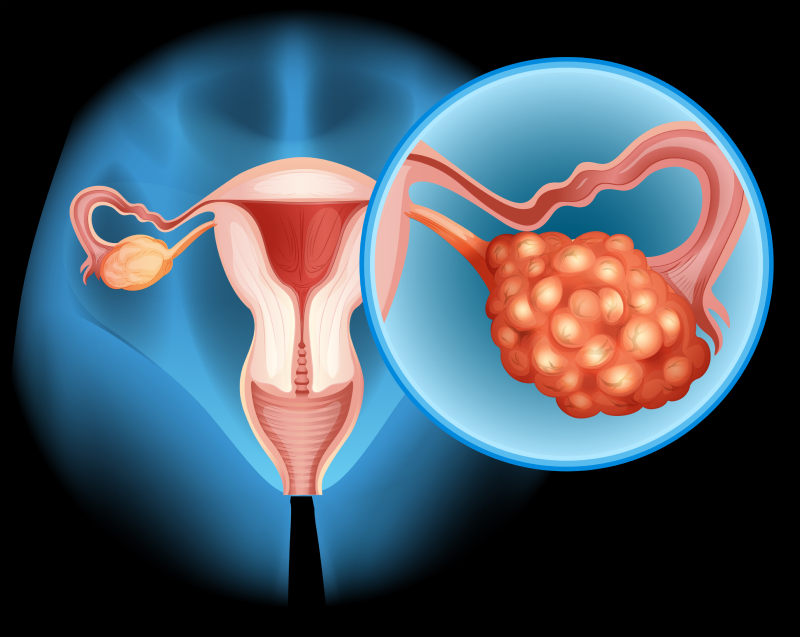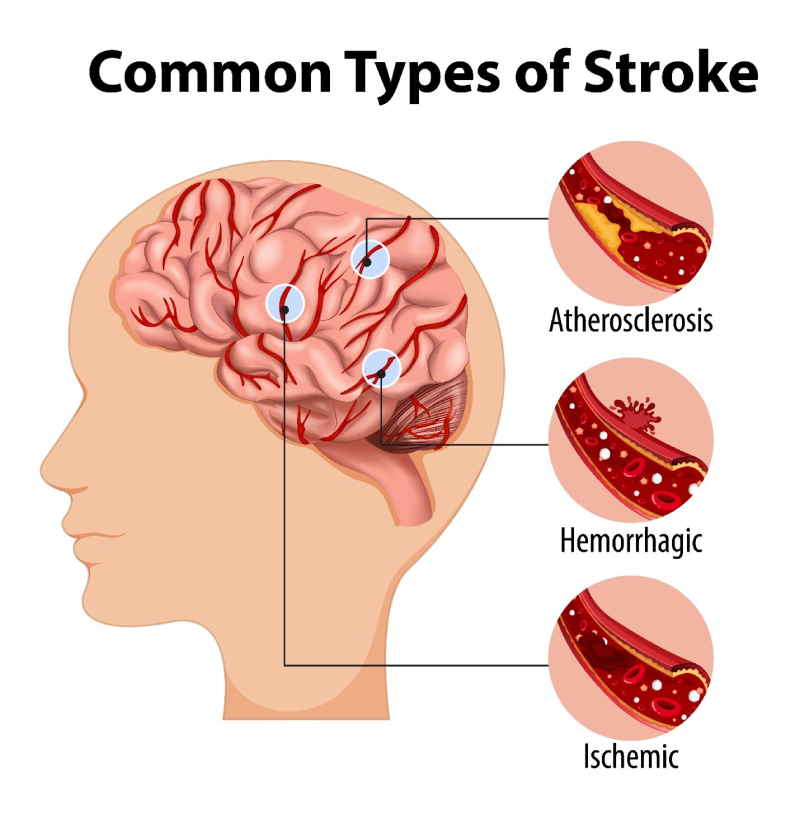Thyroid Disease Symptoms

Livefit4ever,
Medically Reviewed by ,
Febuary 04, 2024

Functions of Thyroid Glands at a Glance
- Regulation of metabolic rate
- Weight management
- Temperature control
- Growth & Development
- Proper functioning of the heart & muscles
- Proper brain functions & development
- Muscle contractions
- Skin and bone maintenance
Thyroid Disease – Surprising Symptoms, Causes & Risk Factors
Hormones from the thyroid gland affect almost every organ and cell of the body and also control important functions – such as weight, mood, digestion, protein synthesis, body temperature, skin, hair, nails, heart rate regulation, and breathing. In a nutshell, your thyroid gland and its hormones regulate metabolic rate, growth, and development.
The food we eat is transformed into energy by a process called metabolism. The thyroid gland controls metabolism in the body by producing specific hormones:
T3 (triiodothyronine, contains three iodide atoms)
T4 (tetraiodothyronine or thyroxine, contains four iodide atoms)
T4 is an inactive form of thyroid hormone. It doesn’t affect the cells of your body. But your kidneys and liver convert most of the T4 into T3. Cells in muscles and brown adipose fat tissue also convert T4 to T3.
Thyroid-binding globulin is a protein or just like a carrier that carries, T3 and T4 in the bloodstream.
The process by which this conversion occurs is known as de-iodination. This process is important because the cells that receive thyroid hormones have receptors that can effectively use T3 or, in other words, they use T3 better than T4.
Functions of Thyroid Hormones
Both these hormones together regulate several functions of the body including:
- The rate of transformation of food into energy – metabolic rate (the speed of metabolism)
- Digestive and heart functions
- Muscle function & control
- Bones health maintenance by helping in calcium absorption into bones
- Brain development in infants
A normal thyroid gland produces the right amount of hormones to ensure normal metabolism and thus normal functions.
Why do you get Thyroid disease?
You will get thyroid disease if you have any issues in the hypothalamus, pituitary gland (brain), or thyroid gland. This means, your thyroid problems are not always related to your thyroid glands. This may seem surprising, but it is true.
Let us try to understand this fact in detail…
How Does Your Brain Control Thyroid Hormone Production?
The hypothalamus controls body temperature, heart rate, blood pressure, and digestion as well as thyroid hormone production along with the pituitary gland.
The small pituitary gland sits below the hypothalamus and is connected to it through a stalk. The pituitary gland communicates with the hypothalamus through this stalk and controls the release of TSH and thyroid hormones.
Thyroid hormone production and control mechanism begins like this:
Your hypothalamus releases a thyroid-releasing hormone (TRH) to stimulate the pituitary gland so that it releases thyroid-stimulating hormone (TSH).
TSH triggers the production of T4 and T3 in the thyroid gland. The thyroid gland releases around 80% of T4 and 20% of T3 in the bloodstream.
Your thyroid gland needs adequate levels of iodine (which you get through your diet) to produce T4 and T3.
When you have sufficient levels of T3 and T4 hormones in your body, then your hypothalamus doesn’t release TRH, and your pituitary also doesn’t release TSH. When T3 and T4 levels drop then the feedback loop starts again to release both TRH and TSH. In this way, your body maintains constant levels of thyroid hormones.
The pituitary gland controls the activity of the thyroid gland by communicating with it. To do so, it releases thyroid stimulating hormone (TSH) that communicates with the thyroid gland and tells it what to do to bring back the thyroid hormone levels back to normal.
Thyroid disease (disorders)
Any medical condition that disrupts the normal production of thyroid hormones is called a thyroid disease. The thyroid can make excess or less thyroid hormones due to a medical condition affecting the thyroid gland.
Common Disorders of the thyroid gland
- Thyroiditis (swelling of the thyroid)
- Thyroid nodules (lumps in the thyroid gland)
- Goiter (an enlargement of the thyroid gland)
Hyperthyroidism (overactive thyroid) – your thyroid gland makes too much thyroid hormone. This condition is called hyperthyroidism. In this type of thyroid disease, your body uses energy quickly making you feel tired, causing you to lose weight, feel nervous, and make your heart beat faster.
Hyperthyroidism symptoms
The symptoms look similar to other conditions. Therefore, it becomes difficult to diagnose hyperthyroidism symptoms. A wide range of hyperthyroidism symptoms include the following:
- Weight loss without trying
- Arrhythmia (irregular heartbeat)
- Tachycardia (faster heartbeat)
- Heart palpitations (pounding of the heart)
- Irritability, anxiety and nervousness
- Changes in bowel movements (more frequent)
- Changes in menstrual cycle in women
- Sweating
- Trembling in hands (tremor)
- Increased hunger
- Brittle hair
- Moist and warm skin
- Sleep issues
- Muscle weakness
- Tiredness
- Swelling at the base of the neck (enlarged thyroid gland or goiter)
- Increased sensitivity to heat
Causes of Hyperthyroidism
The following conditions can lead to hyperthyroidism:
Inflammation of the thyroid gland (thyroiditis): The reason is unknown, but it may be due to an autoimmune disorder. This condition can lead to the release of excess thyroid hormones into the bloodstream causing the symptoms.
Overactive thyroid nodules (Plummer disease, toxic multinodular goiter, or toxic adenoma). In this condition, noncancerous lumps (adenomas) form and make excess thyroid hormone.
Graves’ Disease: An autoimmune condition wherein immune cells attack the thyroid gland and trigger excess thyroid hormone production. It is the most common cause of hyperthyroidism.
When the whole thyroid gland swells, it is a diffuse goiter. When individual nodules grow in the thyroid gland, it is nodular goiter.
Hypothyroidism: Your thyroid gland produces less amount of thyroid hormone. This condition is called hypothyroidism (underactive thyroid). The symptoms of low thyroid hormones in the body include feeling tired, weight gain, and sensitivity to cold temperatures.
Hypothyroidism symptoms
- Weakness
- Weight gain
- Tiredness
- Muscle weakness
- Hoarse voice
- Dry skin
- Constipation
- Sensitivity to cold
- Muscle tenderness, stiffness muscle aches, and weakness
In the beginning the symptoms such as weight gain and fatigue manifest, but you may tend to ignore them considering those symptoms to be just a part of aging. But you will experience more obvious symptoms as your metabolism slows down gradually as thyroid disease progresses.
Causes of hypothyroidism
The causes of hypothyroidism may include thyroiditis (an inflammation of the thyroid gland). It can be due to an infection or an autoimmune disorder.
Thyroid surgery can lower thyroid hormone production or stop it completely.
Hashimoto’s thyroiditis: An autoimmune disorder such as Hashimoto’s disease in which the body’s antibodies attack healthy thyroid cells and affect their ability to make hormones.
Certain medicines can lower thyroid hormone production
Disorders of the pituitary glands can lead to low levels of TSH.
Who can get thyroid disease?
Thyroid disease can affect anyone irrespective of age, gender, ethnicity, and geographical location. Infants, children, men, women, and the elderly can develop this condition. It can also be present at birth.
The risk factors for thyroid disease:
- Type 1 diabetes
- Pernicious anemia
- Rheumatoid arthritis
- Primary adrenal insufficiency
- Taking medicines high in iodine (amiodarone)
- Consuming food excess in iodine
- Iodine deficiency
Bottom Line
The two main disorders: hyperthyroidism and hypothyroidism can be caused by a variety of conditions. They can also be passed down through families (inherited).
Problems with your thyroid glands can lead to changes in the metabolic rate. When the metabolic rate speeds up or becomes faster or slows down, it can lead to unexpected weight loss or weight gain. In addition, thyroid disorders can cause other symptoms such as intolerance to heat or cold, irregular heartbeats (too fast or slow heartbeats), dry or moist skin. If you experience these symptoms, don’t delay in seeking medical help.






